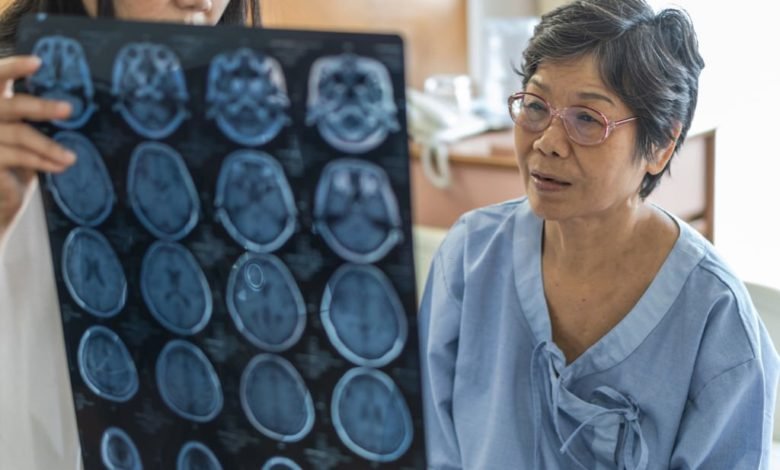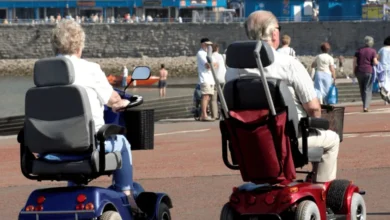What Tests Are Done to Diagnose Alzheimer’s

Dementia is a general term describing a loss of memory and other cognitive abilities that are severe enough to interfere with daily activities. Alzheimer’s disease is one of the most common causes of dementia, accounting for 60-80% of dementia cases. Although no single test can detect Alzheimer’s, physicians use various approaches, tools and tests to help make an early Alzheimer’s diagnosis. Read on to learn more about every important Alzheimer’s test.
Medical Tests for Diagnosing Alzheimer’s
The following are medical tests that help professionals assess the condition of Alzheimer’s patients. These tests cover an extended range, including cognitive tests for Alzheimer’s.
1. Medical History
Medical history, including psychiatric history and cognitive and behavioural changes, will be reviewed by the healthcare provider during the medical workup. The doctor needs to know about any current and past medical problems and concerns and any medications the patient takes. In addition, the doctor will ask about critical medical conditions that affect other family members, such as Alzheimer’s disease and other dementias.
2. Physical Exam and Diagnostic Tests
During a physical exam and diagnostic tests, a physician will:
- Ask about diet, nutrition, and alcohol use.
- Review all medications, and check blood pressure, temperature and pulse.
- Make sure your heart and lungs are working properly.
- Assess overall health using other procedures.
- Collect blood or urine samples for laboratory testing.
Physical exams and laboratory tests can detect health issues that might cause dementia symptoms. Depression, sleep apnea, delirium, medication side effects, thyroid problems, vitamin deficiencies, and excessive alcohol consumption are all common causes of dementia-like symptoms. There is often a possibility of reversing these conditions, unlike Alzheimer’s and other dementias.
3. Blood Tests
Specific markers are being investigated as potential indicators of Alzheimer’s disease. It may be possible to measure tau or beta-amyloid biomarkers before and after symptoms appear.
A blood test would allow a greater understanding of the progression of Alzheimer’s in a broader and more diverse population. However, much more research must be done before being used in trials and at the doctor’s office. In the meantime, researchers continue to strive for standardized, validated tests that will deliver reliable results for all individuals.
Several blood tests are currently available to aid in memory complaint diagnosis. FDA approval has yet to be available for these tests. Now, blood tests should only be used by specialists treating patients with memory problems. Therefore, people without any cognitive or memory symptoms should not take them.
Current tests can detect amyloid changes in the brain, neurodegenerative diseases, or damage to the neurons. Alzheimer’s disease or any other form of dementia cannot be diagnosed by either of these blood tests alone; they are part of a diagnostic workup.
4. Brain Imaging
To diagnose Alzheimer’s disease, medical professionals often recommend magnetic resonance imaging (MRI) or computed tomography (CT). Alzheimer’s disease has symptoms similar to other medical conditions but requires different treatment. The primary purpose of these tests is to rule out these conditions. Fortunately, brain structural imaging can reveal tumours, strokes, damage from severe head trauma, or fluid buildup in the brain.
Using brain imaging tools, a doctor can determine whether the patient has high levels of beta-amyloid, a hallmark of Alzheimer’s; normal levels would suggest Alzheimer’s is not the cause.
The use of imaging technologies has revolutionized our understanding of brain structure and function. Therefore, Alzheimer’s researchers are investigating other brain imaging techniques to diagnose the disease better.
5. Mental Cognitive Status Tests
MMSE and Mini-Cog tests are two of the most common cognitive tests for Alzheimer’s. They test a wide range of everyday mental skills by asking patients questions. MMSE scores can reach 30 points. The scores are as follows:
- 20 to 24: Mild dementia
- 13 to 20: Moderate dementia
- Less than 12: Severe dementia
An Alzheimer’s patient’s MMSE score typically declines by two to four points per year.
Two tasks are required during the Mini-Cog test:
- To remember the names of three common objects and repeat them a few minutes later.
- Draw a clock face with all 12 numbers in the correct places and the specified time.
Using the results of this short test, a physician can determine if further evaluation is necessary.
The Benefits of an Early Diagnosis
If you or a family member has memory problems, you may feel uncomfortable seeing a healthcare provider. Moreover, it is common for people to hide their symptoms or for family members to cover for them. Dealing with the losses that Alzheimer’s dementia brings can be challenging. Losing independence and driving ability can be among them.
Although this disease has no cure, most of the time, professionals can early diagnose Alzheimer’s based on test results and medical history. An early diagnosis can be very helpful. A good understanding of your capabilities is equally important as a knowledge of your limitations. Healthcare providers can start treating memory problems if there is another treatable condition causing them.
Drugs and nondrug interventions can help manage symptoms of Alzheimer’s dementia. In addition, medications prescribed by doctors may slow memory loss.
To reduce the effects of Alzheimer’s dementia, your doctor may also suggest ways to make your home safer, create routines, plan activities and manage changes in skills.
Early diagnosis can also help you, your family, and your caregivers prepare for the future. You will be able to make informed decisions on a variety of topics, including:
- Resources and services available in the community
- Residential and at-home care options
- Developing a financial plan
- Medical decisions and expectations for the future
In addition to explaining Alzheimer’s dementia to you and your family members, a doctor will help you understand the condition and answer your questions. Keeping your independence, health, and safety can be made easier with the help of your care team.
Final Words
In most cases, it is possible to make an accurate diagnosis of Alzheimer’s based on a history and a mental status examination. Despite this, Alzheimer’s is only one of many disorders capable of impairing cognitive function. Since we wait for a very accurate, widely available, and insurance-covered clinical test for Alzheimer’s, the diagnostic tests described here help support a clinical diagnosis and identify treatable alternate explanations for cognitive changes.






